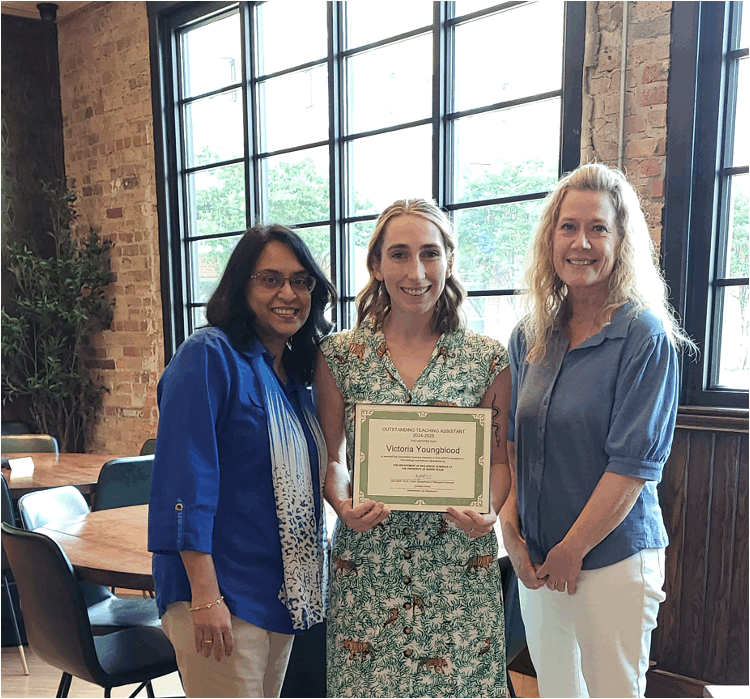Meet Victoria Youngblood, a UNT graduate student investigating how the body interacts with its environment.
Meet Victoria Youngblood, a UNT graduate student investigating how the body interacts with its environment. For her doctoral research, Victoria has been studying how air pollution alters hormone signaling and how it contributes to inflammation and disrupted metabolic function.
“I have always been fascinated by the complexity of metabolic diseases and the role of hormones in regulating these states,” said Victoria, who is working under the research mentorship of Dr. Amie Lund. “Specifically, there is a huge gap in literature for studying how these diseases and treatments affect women. I have several family members who are impacted by PCOS, so that has been a huge inspiration for the direction of my research.”

Before embarking on her Ph.D. journey, Victoria received her undergraduate degrees
at UNT, double majoring in history and biology with a minor in chemistry. “I always
loved the Denton area, which is how I landed at UNT,” she said. “It took me awhile
to figure out what I wanted to do, but my drive to understand physiological mechanisms
of toxin exposure and health related outcomes ultimately led me down the PhD path.”
Victoria’s academic accomplishments include presenting the past three years at the
Society of Toxicology Conference, and she's been the recipient of the Bill Glaze Fellowship,
the Summer AERI RA Award, and the Outstanding TA Award.
“One of the most rewarding aspects of my time at UNT has been training undergraduate researchers and teaching the next generation of biologists,” said Victoria. “I have also enjoyed presenting our research at conferences and making connections with other researchers doing similar work.”
She said that the advice and encouragement of her mentors has made all the difference in helping navigate the challenges of graduate student life.
“Dr. Lund has helped me narrow the scope of my research and meet important milestones in my graduate career and my teaching mentor, Dr. Syeda Alam, helped me recognize my love for teaching,” said Victoria. “The most challenging part of this work has been balancing family life and research, so I am grateful to mentors that are very understanding and help me find the balance!”
Victoria is looking forward to spending this summer finishing up lab work and getting a good start on her dissertation, and hopes to pursue a career in research beyond her Ph.D. “I hope my research will contribute to the development of innovative treatments and therapies for metabolic diseases associated with toxin exposure,” she said.
Her advice for other students following in her footsteps: “Pick a lane for your research. I tend to go down numerous rabbit holes at once, but just picking one and sticking with it is the only way to get things done.”